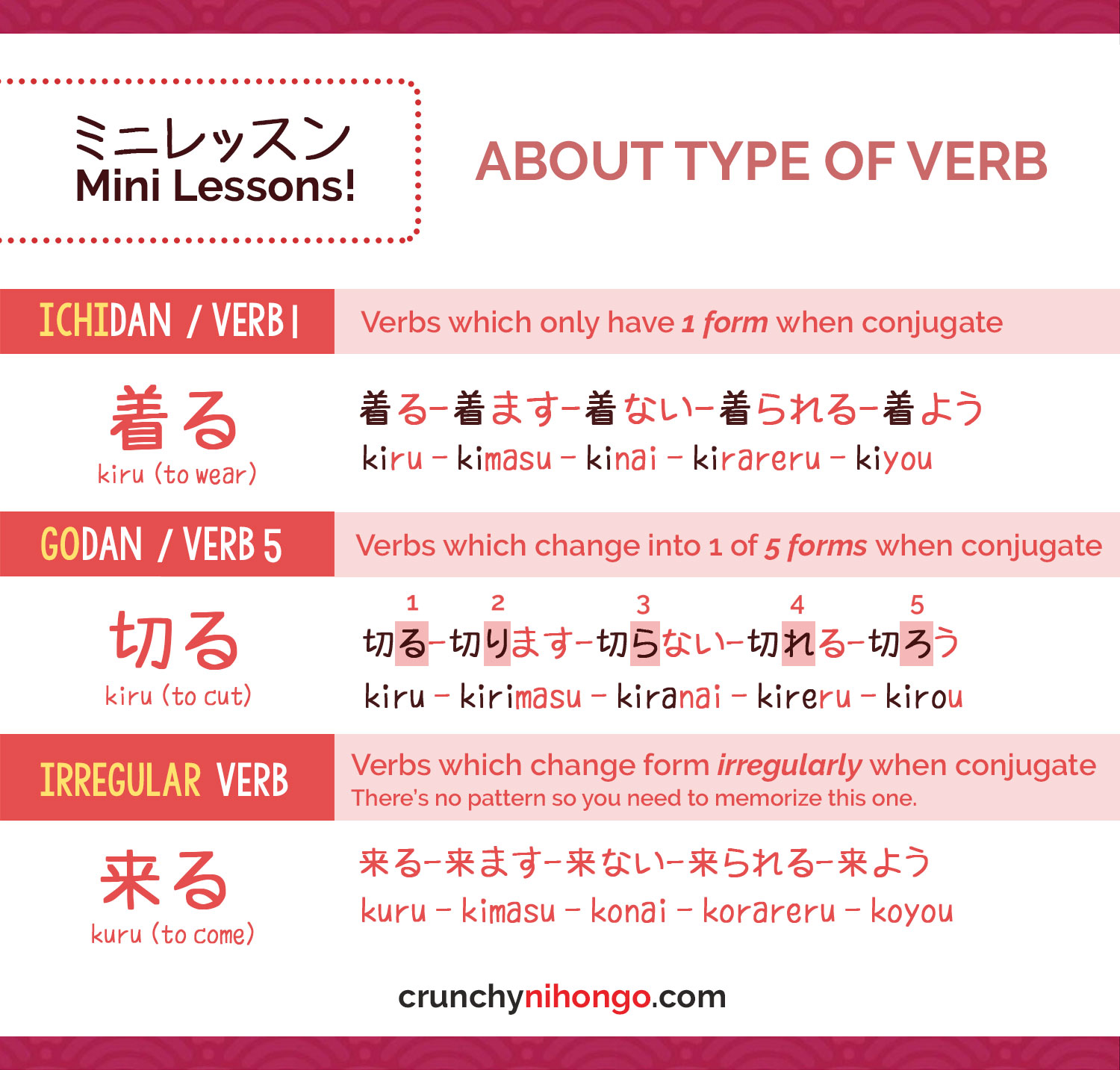Hi ! We hope this site helps you! ٩(ˊᗜˋ*)و As an Amazon Associate, we earn from qualifying purchases without additional cost. Click to read more about our Privacy Policy or Affiliate Disclosure

Additional Notes
ICHIDAN/GODAN and RU/U verbs are just terms. You can use anything you feel more comfortable with. Here’s the conversion to Ru/U verbs.
Ichidan (Verb 1) = RU verbs . Godan (Verb 5) = U verbs
CrunchyNihongo pick Godan/Ichidan terms since the word literally explain the behaviour of the verb. Ichi means 1 while Go means 5. Ichidan only have 1 form while Godan might change into 1 out of 5 forms as explained above. Plus, some dictionary also list godan/ichidan on the word explanation 🙂
Basically there are 3 types of behaviour for Japanese verbs when conjugate. One which is the easiest to conjugates since it doesn’t change at all (only have 1 form). One is quite hard to conjugates since it might change form when conjugates. And the last one doesn’t have any pattern when conjugates (irregular).
On Godan verbs, as you can see in the example above, the hiragana る which follow the kanji on 切る, changes form into り、ら、れ、ろ. Basically it changes into A I U E O sound of the hiragana. so RU becomes RI, RA , RE and RO.
If it is MU, it becomes MI, MA, ME and MO. Let’s use 読む for example:
読む(yomu) – 読みます (yomimasu) – 読まない (yomanai) – 読める (yomeru) – 読もう (yomou)
For irregular verb case, you need to memorize them. But no need to worry since Japanese only have two irregular verbs. They are する suru (to do) and 来る kuru (to come).
Happy learning! 。゚✶ฺ.ヽ(*´∀`*)ノ.✶゚ฺ。
